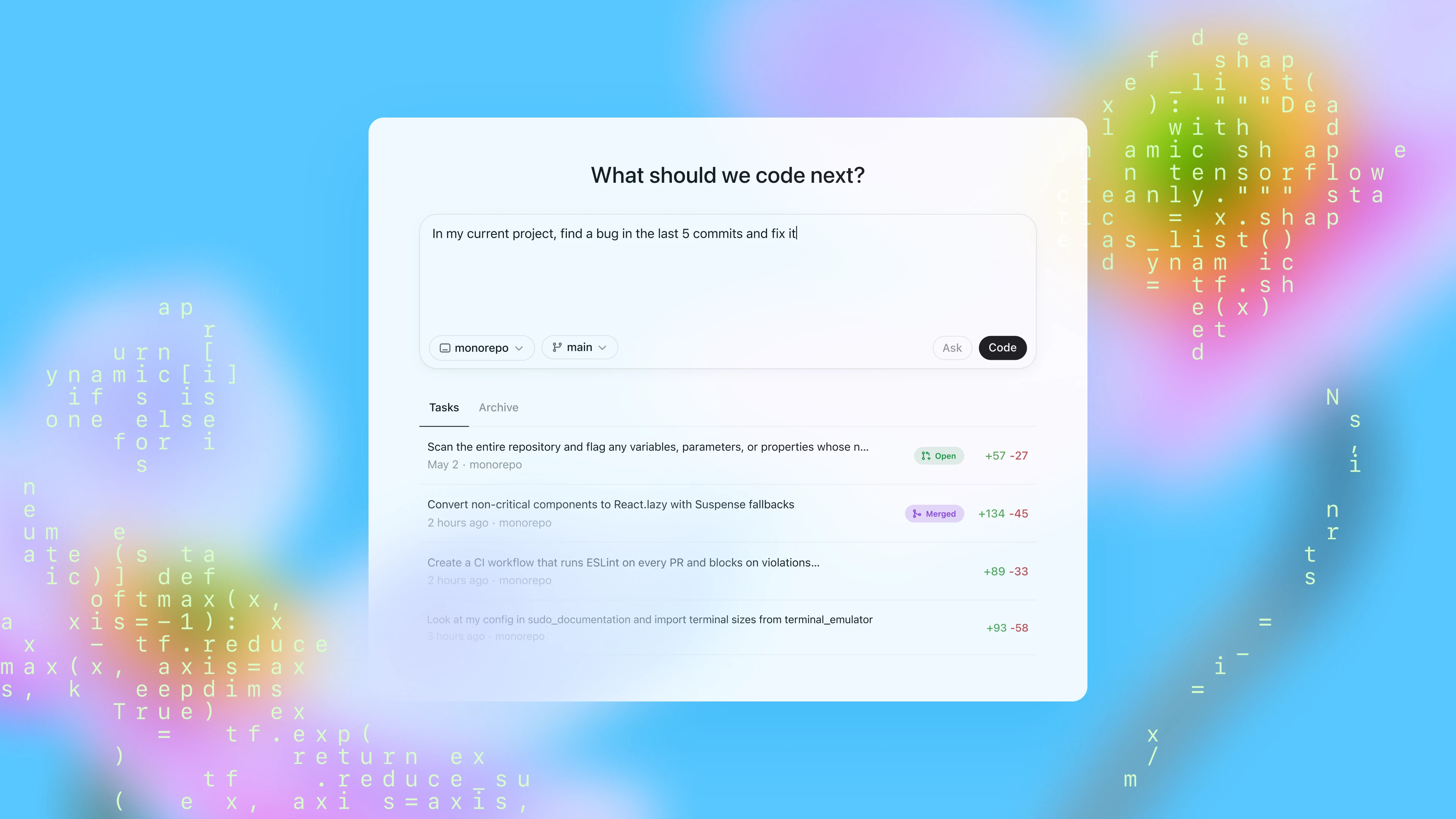- Building AI Agents
- Posts
- OpenAI releases a fully autonomous coding agent
OpenAI releases a fully autonomous coding agent
Plus: a free webinar on the leading agent framework, the simplest agent is also the most effective, and more

Welcome back to Building AI Agents, your biweekly guide to everything new in the field of agentic AI!

The first logo of Building AI Agents (then Agentify)
Today, May 19, marks one year to the day since the first issue of Agentify, the newsletter which would eventually become Building AI Agents, went out to our first 15 subscribers. Please don’t click on that link—no one should ever see the cheesy graphic I created for it again.
With over 3,600 subscribers today (and growing quickly!) we’ve come a long way. The AI agent field has too, exploding from a niche that was just starting to be recognized by Big Tech to the universal talk of the corporate world, even far beyond Silicon Valley.
I hope Building AI Agents has been—and continues to be—a valuable resource to you as you navigate this pivotal moment in history.
Thank you all for being a part of this journey.
—Michael Cunningham and the Building AI Agents team
In today’s issue…
OpenAI’s two major coding agent moves
A free webinar on the leading agent framework
How are people actually using agents?
Does agentic AI spell doom for SaaS?
The simplest and most effective agent
…and more
🔍 SPOTLIGHT

Source: OpenAI
OpenAI just made its second major play in AI coding in just two weeks.
On Friday, the company released Codex, a software engineering agent capable of carrying out complex tasks like creating new features, fixing bugs, and proposing pull requests. In response to a user prompt, the agent, powered by OpenA’s new specialized codex-1 model, will execute a series of actions, such as writing, modifying, and executing code, operating autonomously for up to 30 minutes until it completes its job. Codex is currently available as a preview to ChatGPT Teams, Enterprise, and Pro customers, and OpenAI says Plus users will get access soon.
In the early days of AI coding—keep in mind, we’re talking about such a fast-moving field that “early days” means circa 2023-2024—the dominant paradigm was coding assistants, which simply autocomplete lines of code or write small blocks in response to a user’s request, like “write me a function that fits a random forest model on the input data.” By far the most successful coding assistant has been GitHub Copilot, with over 15 million users as of April.
But these are being challenged by more advanced coding agents, which can formulate a plan for addressing a programming task and autonomously carry it out by writing and executing code, creating or deleting files, and more, while adjusting on the fly in response to code outputs, all (ideally) without any human involvement. While the first viral example, Devin, was buggy and underwhelming, Replit agent has been far more successful, and has spawned legions of imitators.
Others, like Cursor and Windsurf, take a hybrid approach, with features of both coding assistants and coding agents. According to unconfirmed reporting by Bloomberg, OpenAI reached a deal to buy Windsurf for $3 billion two weeks ago.
If this proves to be true, it would have two major implications. First, OpenAI is making a strong play for the AI coding space, an area where it has lagged behind rivals such as Anthropic and Google, with their respective Claude Code and Gemini Code Assist tools.
Second, OpenAI isn’t putting all its eggs in one basket. It recognizes that coding agents aren’t quite ready to take over all software engineering from humans, relegating them to the role of project managers, and that many developers will still prefer to keep AI on a tight leash while coding—hence the Windsurf acquisition.
But it also recognizes that full autonomy is the way the wind is blowing. Google clearly does too—the company is reportedly planning to launch a coding agent of its own at its I/O conference this week. While traditional IDEs augmented with coding assistants will be the standard for software engineering in the short term, the rapid progress of coding agents means that the human will steadily be moved further and further out of the loop.
If you’re a software engineer, you’d better learn to work with tools like Codex.
🤖 AI AGENTS FOR YOUR BUSINESS
Orynt AI: The official implementation agency of Building AI Agents
🕙💰 LIMITED TIME ONLY: Refer a future customer to us and get 10% of the total value of the contract as a bonus!
Discover exactly where AI can streamline your operations, saving you time, reducing overhead, and improving consistency.
Automate routine tasks with agents tailored specifically to your business needs.
Unlock serious growth and efficiency by scheduling your free 30-minute strategy call.
